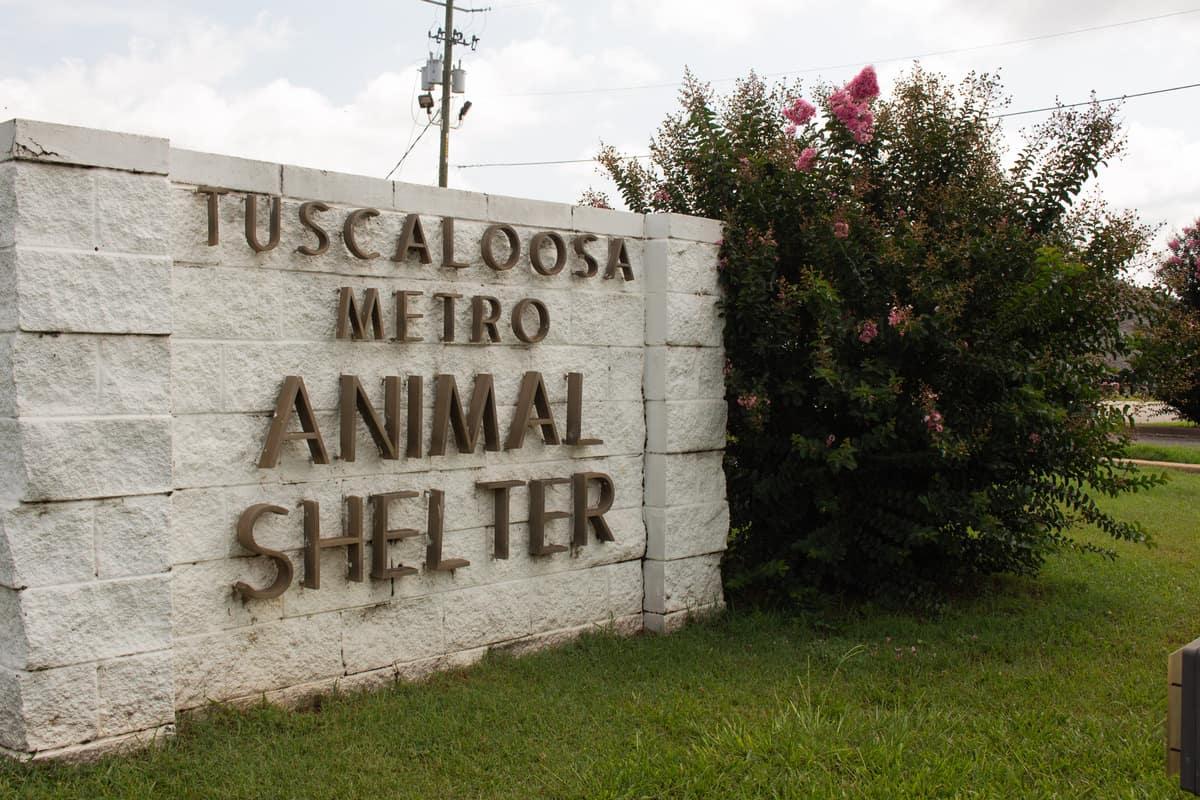Tuscaloosa Metro Animal Shelter has exceeded capacity and needs help from the community.
Abby Moore, the intake, health and behavioral manager for the shelter, said there are several factors contributing to the shelter being over capacity, one being the lack of kennel space.
Moore said the shelter has a contract with Animal Control stating that all animals must be in properly sized kennels, which limits the number of animals, specifically dogs, that the shelter can take in.
In addition to not having enough space for the animals to live properly, the shelter is understaffed.
Finding good employees for the shelter is challenging because of the skills they must be taught, such as protocols for cleaning and handling, and how to train animals.
One way that people can help is through volunteering.
“We appreciate all of our volunteers so much,” Moore said. “Our laundry piles up from having over 200 animals in our care, so even the smallest things like that make such a huge difference.”
Fostering is a good way for people to decide whether to adopt, because it requires lower costs and less time commitment. The shelter provides everything that a foster family may need in order to take care of an animal, including medications, food, bowls and harnesses.
“Fostering is essential, especially having so many animals coming in from all over the place,” Moore said. “Being here is stressful on animals.”
Even if only temporary, fostering also helps the animals get used to environments beyond the shelter.
“Once they’re in a foster home, they get to learn what it’s like to be in a home environment, which then makes them ready to be adopted into a forever home,” Moore said.
For individuals not sure about adoption or fostering, Tuscaloosa Metro Animal Shelter also runs a Happy Hour program in which individuals can play with a dog all day or overnight. It is a great way to get to know an animal and see how it behaves outside of the shelter.
Rules include participants being over the age of 18, keeping dogs on a leash, staying with the dogs, keeping only one dog per car and returning animals on time.
“We also have overnight Happy Hours. So, they can keep the dog overnight and see how it does at their house and then bring it back the next day,” said Kate Elliott, the shelter’s operations manager.
Tuscaloosa Metro Animal Shelter wants people, especially college students, to help in the way that’s best for them, whether it’s fostering, volunteering or taking advantage of the Happy Hour program.
One facility that partners closely with Tuscaloosa Metro Animal Shelter is the Humane Society of West Alabama. Each time an animal is adopted from the Humane Society, it works with Metro Animal Shelter to take an animal from its facility to help free up kennel space.
Tina Miller, the president of West Alabama Humane Society and a dog adoption counselor, said overcrowding can be solved by spaying or neutering your pet.
“A lot of progressive, especially Northern, cities have very strict spay-neuter laws,” Miller said. “We [Alabama] do not, and of course that leads to dogs and cats having litters of unwanted animals, which is a travesty in animal rescue these days.”
According to PETA, cities such as Los Angeles, New York and Dallas, among others, have ordinances that make it mandatory for pets to be spayed or neutered before a certain age. Each city has its own exceptions, but the laws are in place to help prevent animal homelessness.
The American Veterinary Medical Association states that controlling pets’ reproduction through managed breeding, containment, or spaying and neutering can help manage overpopulation.
Miller said that her hope for people who want to adopt animals is that they can understand the time, effort and responsibility it takes to provide a pet with a forever home.
“The thing that we really stress is responsible pet ownership. You got to be prepared,” Miller said. “Pet ownership can be expensive, and it can be time consuming.”
She also mentioned the Canine Compassion Fund, another nonprofit organization in Tuscaloosa, that aims to educate the community, offer spay-and-neuter programs and provide lifetime care for canines that do not have homes.
The fund’s website states, “The mission of the Canine Compassion Fund, Inc. is to provide lifetime care and enrichment for surrendered or abandoned senior canines in a specialized facility and through a ‘forever foster’ program; to help reduce the population of homeless canines through adoption and spay neuter programs; and to provide responsible pet ownership education to the public.”
For the future, Miller said the Humane Society of West Alabama has plans to open a larger facility that will allow it to take in and care for more animals than it is able to now.
The new space is on track to open next year in Cottondale, and the Humane Society plans to implement programs that will allow young students to interact with animals and learn about responsible pet ownership.
“It’s a huge undertaking for such a small nonprofit as we are, but we think that is the future of animal rescue in Tuscaloosa,” Miller said. “We want to take the reins and be the leader on that.”
The best ways for the community to help are to donate and volunteer. The Humane Society, Tuscaloosa Metro Animal Shelter and the Canine Compassion Fund all have websites with specific lists of items that can be donated and ways for the community to get involved.









